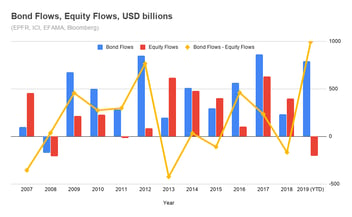We spend so much of our working years fantasizing about the days when we can reclaim our time and enjoy complete financial independence. But as you near the finish line, it’s more important than ever to make sure you’re crossing your t’s and dotting your i’s so you can feel comfortable and confident heading into retirement.
To help you ensure your savings strategy is aligned with your goals for retirement, we’ve outlined a few ways in which you and your team of financial professionals can make the most out of your retirement planning efforts.
Leverage Tax-Advantaged Accounts
Dedicated retirement savings accounts tend to serve as the foundation for most people’s retirement income strategy. These include employer-sponsored plans like 401(k)s and 403(b)s, as well as individual retirement accounts (IRAs), and thrift savings plans (TSPs) for military members.
Why prioritize contributing to a retirement savings account? Because most, including those shared above, offer tax incentives for doing so.
Tax-Deferred Accounts
401(k)s, 403(b)s, and traditional IRAs, for example, allow participants to create tax-deferred savings. Contributions are deducted from their taxable income the year they’re made (up to the annual limit), and anything earned in the account grows tax-free until retirement.
Of course, the IRS wants its cut eventually, so most tax-deferred retirement accounts will require account holders to take distributions in retirement starting at age 73. It’s only when withdrawals are made that you’ll be responsible for paying income tax on the savings.
Keep in mind your retirement accounts shouldn’t be accessed before you reach retirement age, otherwise you may incur additional tax penalties.
Taxable Accounts
Contributing to non-retirement accounts, like a taxable brokerage account, can also help you build wealth—but it won’t offer the tax advantages of a dedicated account like a 401(k) or IRA. The tradeoff is that you’ll have the flexibility to withdraw from the account as you please, and there are no required minimum distributions to worry about.
Tax-Free Accounts
To help keep your retirement income tax-conscious, you can also contribute to tax-free accounts, like a Roth IRA or Roth 401(k). These accounts are built using after-tax dollars, meaning contributions won’t reduce your taxable income for the year they’re made. However, earnings in the account grow tax-deferred, and qualified distributions are tax-free altogether.
If you’re a high-earner and interested in contributing to a Roth account, you and your tax professional may be able to leverage a backdoor Roth IRA strategy to bypass the IRS income limits.
Don’t Forget About Company Matching
Around 98% of companies that offer an employer-sponsored retirement plan like a 401(k) have some sort of company matching benefit.1 Typically employers will match an employee’s contribution up to a certain dollar amount or percentage of their salary.
Frankly put, if you’re not taking full advantage of company matching, you’re leaving free money on the table.
Make Catch-Up Contributions (If Possible)
The IRS allows those who are 50 and over to make catch-up contributions to their retirement accounts. These are additional contribution amounts beyond the standard annual limit.
In 2024, for example, catch-up contributions are:2
- IRA and Roth IRA: $1,000
- 401(k) and 403(b): $7,500
- SIMPLE IRA or a SIMPLE 401(k): $3,500
Think About Your Retirement Destination
Around 40% of adults think they’ll relocate after retirement for a number of reasons, which include finding somewhere with a lower cost of living and enjoying a change of scenery. If you’re thinking about moving to a new state during retirement, it’s important to consider how “retirement friendly” your intended destination is. This can be based on a number of factors including tax treatment of Social Security benefits, tax breaks for seniors, access to healthcare, and more.
Our home state of New Hampshire, for example, is certainly on the friendlier side of the spectrum when it comes to benefitting retirees. The Granite state has no sales tax, income tax, or tax on wages or salaries—meaning your 401(k) and IRA withdrawals won’t incur state income tax. This includes your Social Security income as well.
Keep an Eye on Evolving Legislation
While you don’t need to watch the news every day, new legislation can impact your retirement savings plan, tax liability, and income strategies. The SECURE 2.0 Act passed at the end of 2022, for example, and created some big changes for retirees, such as raising the required minimum distribution age.
As a valued client of Measured Wealth, you're actively building your legacy and securing your retirement. We're committed to keeping you informed about important updates that may impact your financial future.
Sources:
1Here’s why your 401(k) employer match may not be yours just yet
2Retirement topics: Catch-up contributions



